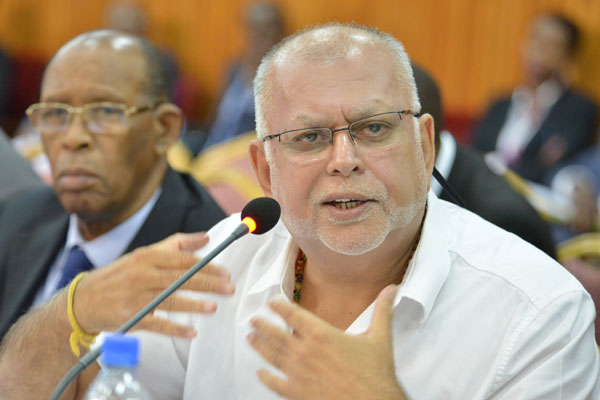Following the Crane bank closure, an incident that raised massive mixed reactions, finally the Kampala High Court is set to make the final verdict.
This will happen on Monday August 26. 2019, the day that will determine whether to dismiss or continue hearing the case in which Bank of Uganda alleges that businessman Dr Sudhir Ruparelia channeled over Shs400 billion from his own now-defunct- Crane Bank an allegation that the famous tycoon has denied from day one.
Sudhir has so far successfully blocked three sets of Bank of Uganda and dfcu Bank lawyers from a representation in the case, after court indicted them for conflict of interest. Now Sudhir looks at doing a double on the Central Bank after his Attorneys cited numerous authorities in bringing up the objection against the BoU suit.
The businessman, through his lawyers — Kampala Associated Advocates has rubbished claims by the Central Bank that he allegedly fleeced his own Crane Bank Ltd of Shs397 billion in fraudulent transactions.
Justice David Wangutusi set July 26 for the ruling after Mr Ruparelia through his Kampala Associated Advocates lawyers asked the court to dismiss the BOU case arguing that the central bank overstepped it’s mandate in filing the case.
Lawyer Elison Karuhanga of KAA argued that when dissolving a bank, BoU had three options — puting someone in management in what is called statutory management, receivership or liquidation.
“[The central bank]chose to go for receivership. Under the law, specifically, only the manager and the liquidator can sue. The case cannot be filed by a receiver,” said Mr Karuhanga argued.
Sudhir’s lawyers faulted BoU for acting hurriedly and overstepping her mandate in hurriedly selling off the Bank to dfcu Bank, a deal that has since attracted criticism.
“The receiver cannot be sued on that act and cannot sue anyone. His action is protected by the law. The second point we are raising is that the receivership is limited by time, the law gives the receiver 12 months to carry out his or her functions and after this, he cannot do anything,” Mr Karuhanga argued.
According to Mr Karuhanga, BoU had 12 months within which to carry out the four functions which did not include suing.
Mr Bruce Musinguzi also argued that Mr Sudhir was no longer the majority owner of Crane Bank that he founded after Mr Rasik Kantaria, a Kenyan national, on December 6, 2010, snapped up 47 per cent of the bank’s shares.
He added that Mr Kantaria later transferred his shares to White Sapphire Ltd, a company incorporated in Mauritius and that a one Jitendera Sanghani, a British citizen, held 4 per cent stake in Crane Bank.
He also contends that under Uganda’s Constitution and the Land Act, Crane Bank in Receivership could not own or hold freehold property and was, therefore, not capable of holding the suit property in it’s names.
In response to the submissions of Sudhir’s lawyers, BoU through it”s lawyer Dr. Joseph Byamugisha told the court that when a financial institution is placed under receivership, the power to commerce or to continue with the civil suit does not stop.





















